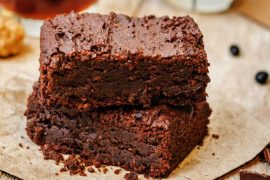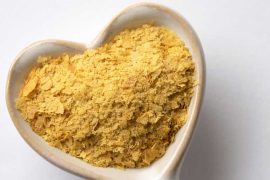Vitamin B12, also known as cobalamin, plays a crucial role in various bodily functions, including the production of red blood cells, DNA synthesis, and the maintenance of brain and nerve function. While animal products are richest sources of vitamin B12, vegetarians can still meet their daily requirements through specific food choices.
Dairy products such as milk and yogurt, along with fortified foods, are essential for vegetarians to ensure a sufficient intake of vitamin B12. Additionally, there are several vegetarian options available that can help fulfill this nutrient requirement.
Fish, shellfish, liver, red meat, eggs, poultry, milk, cheese, and yogurt are among the primary sources of vitamin B12. For vegetarians, incorporating fortified foods like certain breakfast cereals, plant-based milk alternatives (such as soy or almond milk), and nutritional yeast into their diet can provide a significant amount of vitamin B12.
A deficiency in vitamin B12 can lead to various health issues, including shortness of breath, headaches, indigestion, loss of appetite, palpitations, vision problems, memory issues, numbness, weakness, diarrhea, and neurological problems. Therefore, it’s crucial for vegetarians to ensure they are consuming enough vitamin B12-rich foods or considering supplementation if necessary.
Nutritionist suggests a list of foods that vegetarians can incorporate into their diet to meet their vitamin B12 requirements. By being mindful of their dietary choices and including these vitamin B12 sources, vegetarians can maintain optimal health and prevent deficiencies.
Vegetarian sources of vitamin B12:
- Cow’s milk: Naturally contains vitamin B12, crucial for DNA synthesis and overall health.
- Swiss cheese: A good source of B12 supporting cardiovascular health and overall well-being.
- Eggs: Versatile and rich in B12, essential for neurological function and preventing deficiency-related symptoms.
- Fortified nutritional yeast: Adds flavor to dishes while providing a direct intake of B12, supporting red blood cell formation.
- Dried seaweed (nori): Contains natural vitamin B12, important for DNA synthesis and preventing neurological disorders.
- Fermented foods: Small amounts of vitamin B12 may be present in fermented foods like tempeh, miso, and sauerkraut due to bacterial synthesis during fermentation.
- Fortified cereals: Convenient and rich in vitamin B12, fortified cereals support nerve function, DNA synthesis, and red blood cell formation.
- Fortified fruit juices: Drinking fortified juices helps maintain adequate B12 levels, supporting overall health and preventing deficiency-related issues.
- Fortified soymilk: Provides a dairy-free source of vitamin B12, essential for energy metabolism and nerve function.
- Plain yogurt: A source of B12 supporting red blood cell production and neurological function.
Including a variety of these sources in a vegetarian diet can help ensure an adequate intake of vitamin B12, essential for overall health and well-being.
Disclaimer:
The information contained in this article is for educational and informational purposes only and is not intended as a health advice. We would ask you to consult a qualified professional or medical expert to gain additional knowledge before you choose to consume any product or perform any exercise.







